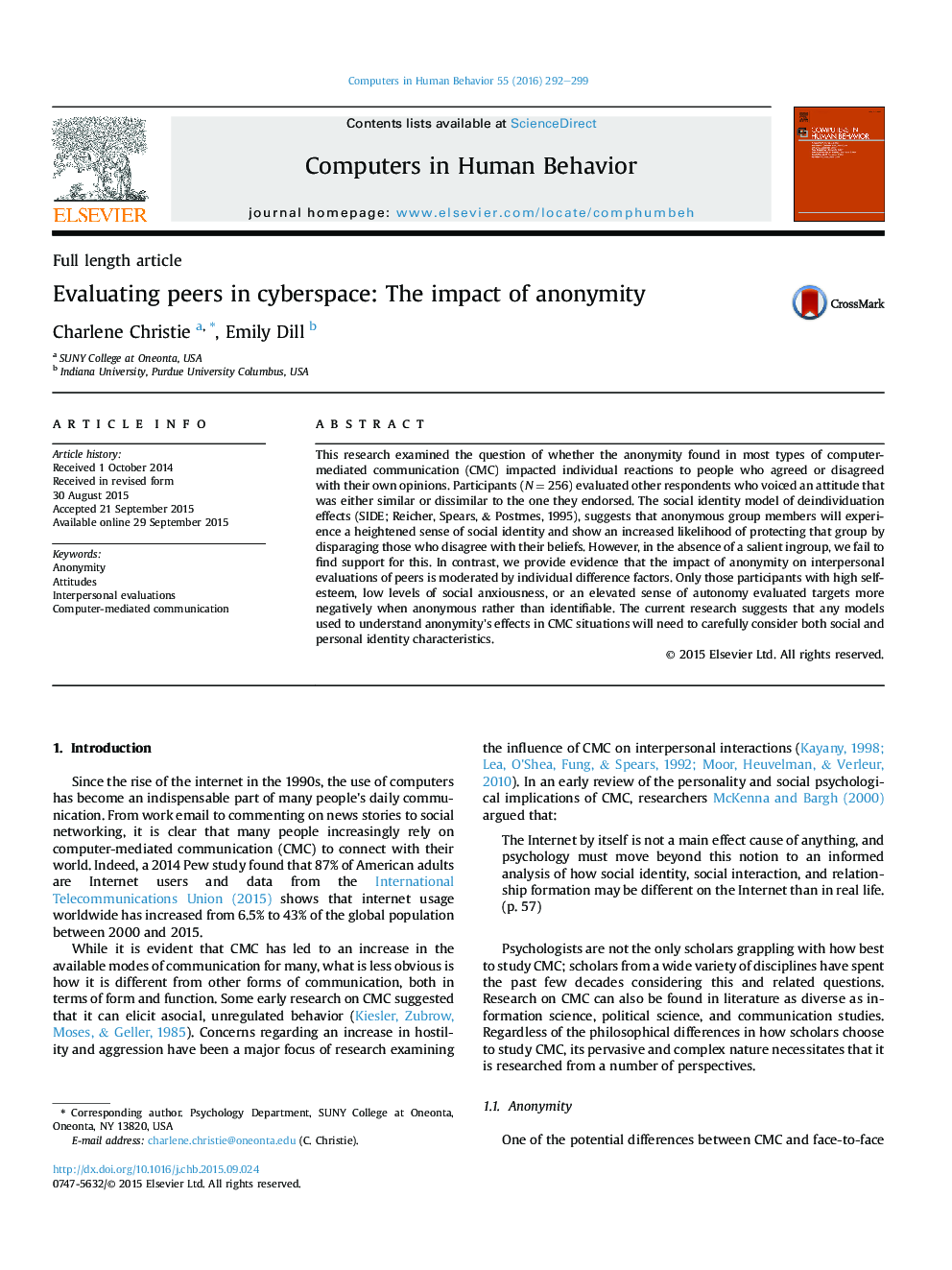| کد مقاله | کد نشریه | سال انتشار | مقاله انگلیسی | نسخه تمام متن |
|---|---|---|---|---|
| 350176 | 618432 | 2016 | 8 صفحه PDF | دانلود رایگان |
• Individual difference variables moderate impact of anonymity on evaluation of peers.
• High self-esteem people voiced harsher opinions when they could not be identified.
• People high in conformity less likely to disparage target when they were anonymous.
• Low social anxiousness results in greater hostility toward targets when anonymous.
This research examined the question of whether the anonymity found in most types of computer-mediated communication (CMC) impacted individual reactions to people who agreed or disagreed with their own opinions. Participants (N = 256) evaluated other respondents who voiced an attitude that was either similar or dissimilar to the one they endorsed. The social identity model of deindividuation effects (SIDE; Reicher, Spears, & Postmes, 1995), suggests that anonymous group members will experience a heightened sense of social identity and show an increased likelihood of protecting that group by disparaging those who disagree with their beliefs. However, in the absence of a salient ingroup, we fail to find support for this. In contrast, we provide evidence that the impact of anonymity on interpersonal evaluations of peers is moderated by individual difference factors. Only those participants with high self-esteem, low levels of social anxiousness, or an elevated sense of autonomy evaluated targets more negatively when anonymous rather than identifiable. The current research suggests that any models used to understand anonymity's effects in CMC situations will need to carefully consider both social and personal identity characteristics.
Journal: Computers in Human Behavior - Volume 55, Part A, February 2016, Pages 292–299
